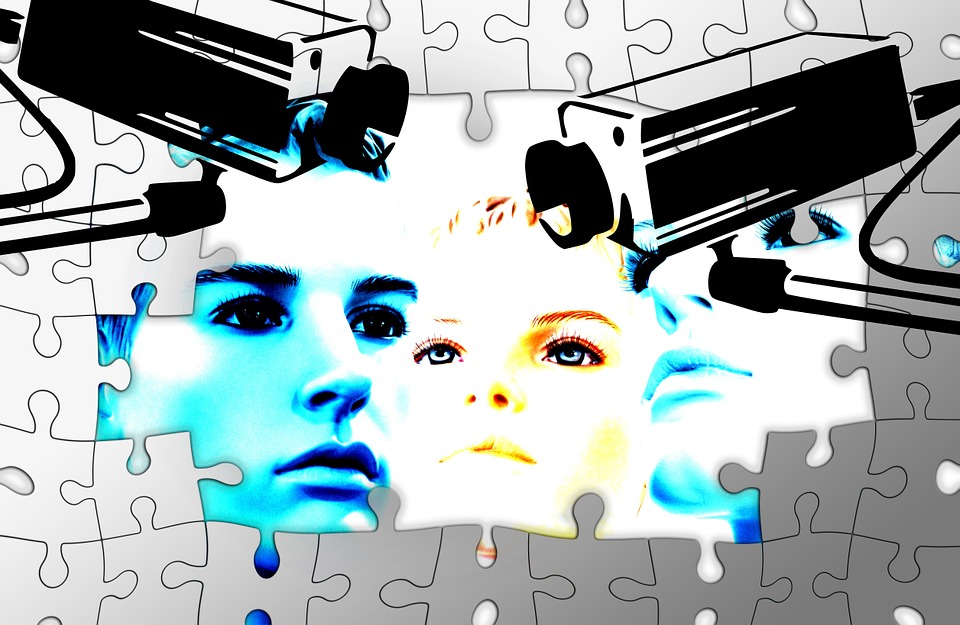Fashion company creating clothing line that shields people from AI facial recognition technology
03/29/2023 / By Arsenio Toledo

Many live-feed CCTV cameras in major urban centers in developed nations are fitted with facial recognition software that can detect and identify individual human faces. This tech can even be upgraded with artificial intelligence (AI) enhancement.
Governments claim this technology is only used against a predetermined watchlist, but the tech always gets accused of being unlawful and unethical by privacy advocates. (Related: AI surveillance tech can find out who your friends are.)
In the world of fashion, Italian clothing brand Cap_able is attempting to fight back against the encroachment of AI facial recognition technology. The company started offering its first collection of knitted garments that shields the wearer from being identified by facial recognition software in AI cameras without the need to cover the wearer’s face.
“The need to protect the individual from the abuse of new artificial intelligence technologies is felt more and more and the doubts about its ethical sustainability in the long term are still many,” wrote the company on its website.
“There are plenty of reasons why people might not want to be tracked by widespread facial recognition technology – for most folk, it’s a pretty dystopian thought that governments worldwide now have access to systems that can identify and profile you simply using footage from surveillance cameras,” wrote Loz Blain for the New Atlas. “And even in countries where governments have sworn they won’t use it, the tech is just as available to corporations, who can and will use it to target you.”
Clothing includes patterns that can fool AI cameras
Cap_able designed its clothing with patterns known as adversarial patches, which can deceive facial recognition software in real time. Designed by co-founders Federica Busani and Rachele Didero, who made the patterns for her doctorate at the University of Milan, the collection uses a range of patterns that can look strange or flamboyant to the human eye.
Didero and Busani created the collection following nine months of research and testing various images, algorithms, knitting machines and materials.
But the trick is that these patterns incorporate details and cues that can trigger AI systems into writing off the entire person either as undetectable or as something that is not human. The AI could be tricked into believing the person wearing the clothing is a zebra, dog or giraffe, preventing them from bothering to even analyze and find a match for the person’s face.
Didero tested the designs using the You Only Look Once (YOLO) algorithm, a neural net-based object detection system capable of rapidly classifying objects in real-time video and recognizing faces when trained using a database of photos.
“Cap_able’s technology helps to safeguard privacy and the protection of personal data, defending citizens who choose to wear its garments from intrusion into their individual life,” wrote the company.
Cap_able converts the digital adversarial patches into 3D knitted textiles using a single yarn, which Didero said are necessary because it allows the company to “control the material of the single yarn and work on the final texture” while maintaining the “adversarial” properties of the patches.
“In a world where data is the new oil, Cap_able addresses the issue of privacy, opening the discussion on the importance of protecting against the misuse of biometric recognition cameras – a problem, if neglected, could freeze the rights of the individual including freedom of expression, association and free movement in public spaces,” said Didero.
“Choosing what to wear is the first act of communication we perform every day. A choice that can be the vehicle of our values.”
One big downside of the clothing is the cost. Cap_able’s garments range between 370 to 640 euros a piece ($400 to $693), before any discounts.
Learn more about advancements in surveillance technology at Surveillance.news.
Watch this clip from “The JD Rucker Show” as host JD Rucker talks about how burgeoning “co-appearance” technology is fast-tracking the development of AI facial recognition technology.
This video is from the channel JD Rucker on Brighteon.com.
More related stories:
Mastercard rolls out payment system that uses FACIAL RECOGNITION technology.
Sources include:
Submit a correction >>
Tagged Under:
AI, AI surveillance, artificial intelligence, big government, breakthrough, Cap_able, clothing, computing, cyber war, evade, Facial recognition, fashion, freedom, future science, future tech, Glitch, information technology, inventions, national security, privacy watch, surveillance
This article may contain statements that reflect the opinion of the author




















